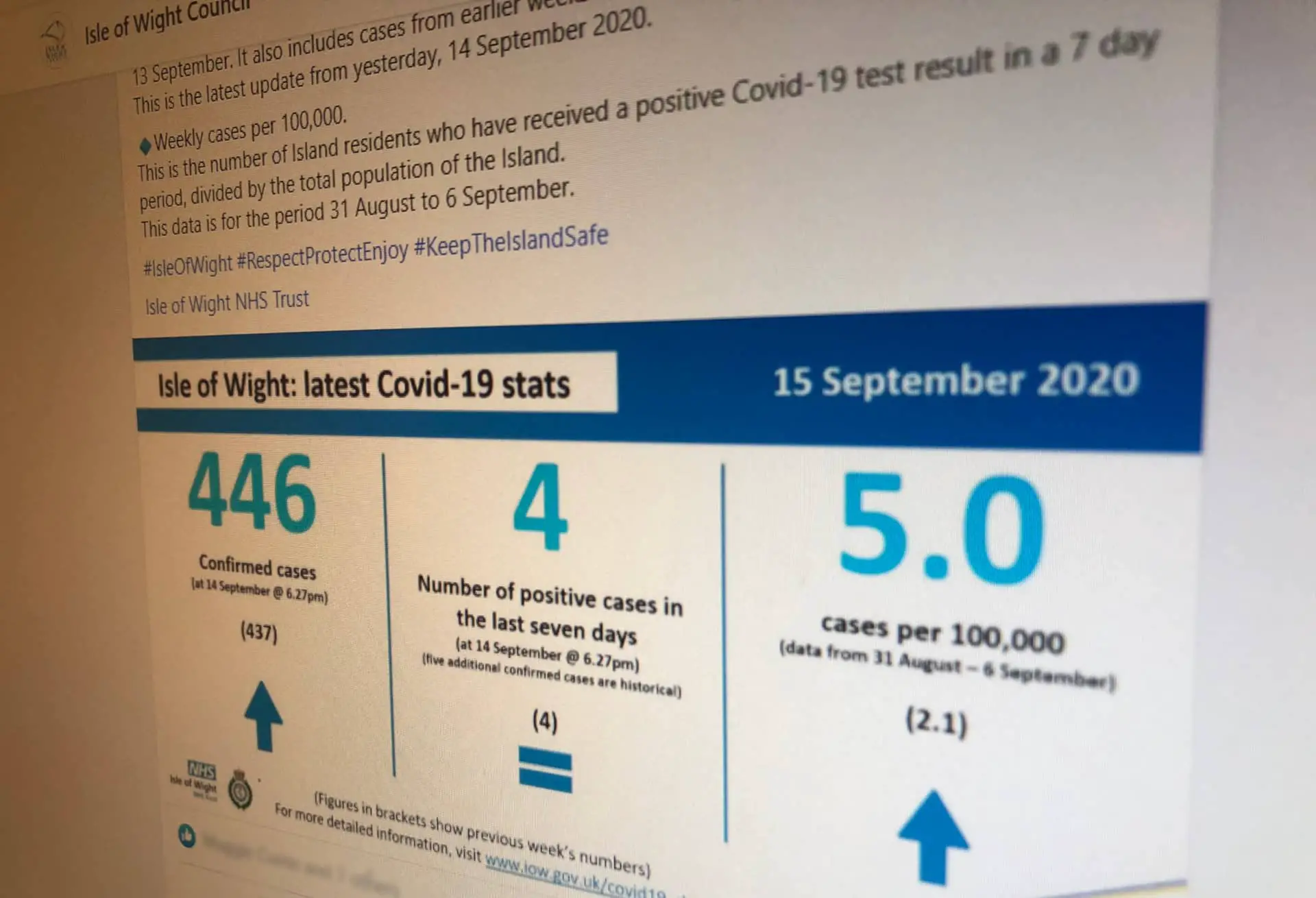Six months into the Coronavirus pandemic the Isle of Wight council started compiling and publishing weekly stats for Covid-19 cases and deaths. News OnTheWight has been publishing updates when changes occur since 7th March.
On Tuesdays, after the Office of National Statistics data for deaths outside the hospital is released, the council issue their infographic of cumulative cases, cases in the last seven days and rate per 100,000 of population.
‘Historical cases’
This week’s graphic included a reference to ‘historical cases’. It was not clear whether these refer to cases as little as just one day beyond the seven day period, or refer to cases from way back in time. The data for confirmed cases is taken for Monday to Monday.
News OnTheWight asked the Isle of Wight council to clarify and they confirmed ‘historical cases’ could be just beyond the seven day period of their last infographic.
A spokesperson for the Isle of Wight council told News OnTheWight,
“It means a case that has been recorded by Public Health England (PHE) this week (ie is included in the difference in totals between last week and this week) but the date it was recorded as positive is longer than seven days ago.
“For example, a test was taken on a Friday but the results maybe came back on the Monday, or it was logged with PHE on the Monday so the results were added to the national data report on the Monday but the case was found to be positive on the Friday ie the week before.”
Quite why they’ve added this reference to ‘historical cases’ is unclear, but it could be because testing and results are now taking longer.





